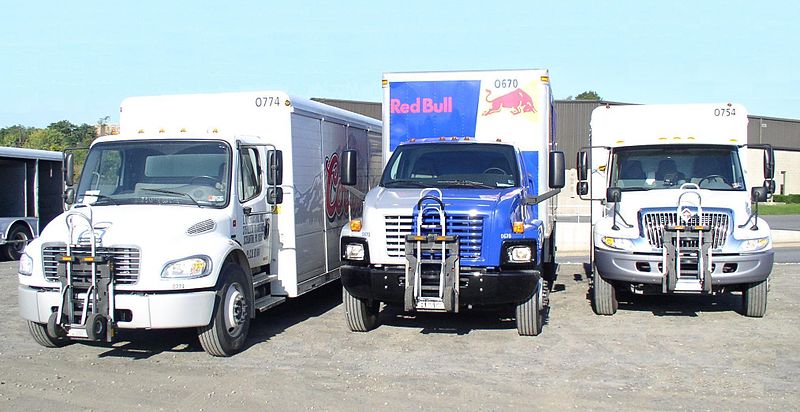
Did you know that a fleet management group that makes the switch to using GPS for their truck fleet sees a 32 percent growth in return on investment in less than six months?
There are many different things that you can and should implement as a fleet manager. These things increase the efficiency of your fleet as well as the safety of your drivers. These business benefits are massive and will help your business ownership save money while watching the business flourish.
But what can a fleet manager do to make such a large difference? You’re in luck because you’ve come to the right place to learn about the fleet strategies to increase your efficiency and grow your profit margin. Continue reading to learn more.
Set Goals
One of the best things you can do as a fleet manager is to set goals. Setting goals and monitoring the progress towards achieving those goals is crucial to growing your business and helping your drivers reach their potential.
A good strategy is to come up with goals that are attainable and clear so that you and your employees have no problems knowing what you’re working towards. This also has the added bonus of uniting your team since everyone is working towards common goals.
There are plenty of good goals that you should set for your team. One goal should be finding ways to improve how you use your truck fleet. Another good goal would be to decrease fuel consumption and increase fleet maintenance.
Setting goals like those will ensure that everyone is on the same page and pulling in the same direction as a team.
Be Accessible
As the fleet manager, you’re the face of the team. This means that you need to be accessible for your team members as well as for the business ownership that has a stake in the success of your fleet and the company.
It is important that you track driving and shipment records as well as any issues that your team encounters. This makes it easier when you address clients and find areas where you can improve.
Choose the Right Truck Fleet Vehicles
Another important thing to consider is what type of trucks or vehicles you want to use in your fleet. If you’re delivering smaller quantities of goods or cargo then perhaps sprinter vans are a better fit for your needs. They provide the advantage of being easier to drive and getting better fuel efficiency compared to semi trucks.
You’ll need to do research in order to determine which type of vehicle is best suited for the industry you’re working in and the needs of your drivers. Another important component of finding the right vehicles is the reliability of your truck fleet.
One of the worst things that can happen to your truck fleet is that you invest in unreliable vehicles that require tons of time in fleet maintenance. Not only will this cost you money for the maintenance and repairs, but it will cost you opportunities to make more money hauling cargo.
No matter what type of vehicle you choose, you’re going to need fuel in order to get cargo from Point A to Point B. As a fleet manager, you should invest in bulk fuel delivery near me.
Think About Your Drivers
Your drivers are another important component of fleet management that you should consider. This all starts with the hiring process for new drivers. You’ll want to make sure that your human resources department does a proper job of vetting candidates and making sure that they have the right experience and credentials for the job.
By hiring the right people, you ensure that they’ll be a good fit for however you wish to deploy them. This is especially true if your drivers require a special license or permit and additional training in order to operate the fleet vehicles your company owns.
Hiring drivers that already have the skills, experience, and license to handle these vehicles save your business valuable time as well as money.
It also saves money on additional and unnecessary repairs on your truck fleet since your drivers have experience operating those vehicles and won’t damage them. It cuts into your fuel costs and also helps the environment by limiting CO2 emissions.
Focus on Fleet Management Cost Control
As a fleet manager, one of the most important aspects of your job is handling cost control. This means that you need a firm grasp of the life cycles of your vehicles. You need to know how long your truck fleet will last from the time that you purchase a new truck to the time that you sell it.
Having a good idea of cost control and asset life cycles will help you know when it is time to start phasing older trucks in your fleet out and purchasing new trucks to replace them. This ensures that your truck fleet remains as efficient as possible at all times.
Invest In Fleet Management Software
Fleet management software goes a long way towards removing some of the burdens off of your shoulders. A good fleet management software is comprehensive in what it brings to the table and it is a great way to make your decision-making more informed.
It is a very useful tool for monitoring the life cycles of your assets and helping you manage them in a way where you’ll get the most out of each of them. It is also a great way to optimize efficiency within your trucking fleet.
Take Your Fleet Management to the Next Level
There are many great things that you should consider implementing when it comes to fleet management and getting the most out of your truck fleet. By hiring experienced drivers and purchasing the right fleet vehicles you’re able to save money on fleet maintenance and keep your assets on the road.
Fleet management software is also a great tool for helping you make processes more efficient and improve your decision-making.
For more informative blog posts, make sure you check out more of our blog today.




